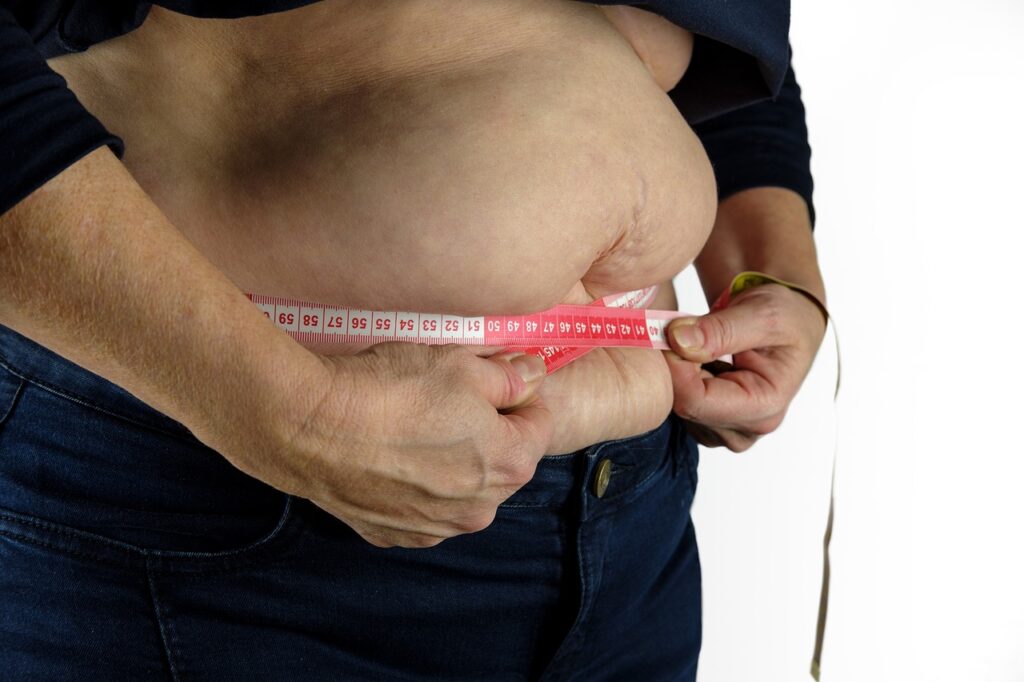In the context of dieting, those who want to get healthier and lose weight are increasingly choosing the ketogenic diet for weight loss. But is it really effective for those who need to lose weight? We’ll go over the specifics of the ketogenic diet, how it helps people shed pounds, and if it’s the best option for you, in this blog post.
Learning about the Keto Diet
The goal of the ketogenic diet, sometimes known as Keto for short, is to put your body into a state of ketosis through a high-fat, low-carb diet. Your body switches from using fat for energy when you dramatically cut back on carbohydrates to burning glucose, or sugar, which is what carbohydrates are broken down into during digestion.
Although it might help in weight loss, it’s crucial to know how this metabolic state functions.
The Macronutrient Breakdown
In a standard ketogenic diet, the macronutrient ratio is approximately:
- 70-75% fats
- 20-25% protein
- 5-10% carbohydrates
Your body needs this balance to go into and stay in ketosis, which is a state where fat is used as its main fuel source.
If you’re new to the ketogenic diet and want to understand the basics, start with our guide: Keto Diet: Navigating the Beginner’s Guide
👉Click Here to Watch the Video Training and Download Your Free Keto Cookbook With 21 Easy Recipes

How Does the Ketogenic Diet for Weight Loss Work?
Fewer carbohydrates mean your body has less glucose available for use as fuel. It then begins to break down fat into molecules known as ketones. The body then uses these ketones as its primary energy source.
Many people who follow the ketogenic diet find that they lose weight quickly. The body’s burning of fat for energy is one reason behind this. It might also be as a result of how the diet helps regulate appetite.
How Does Keto-friendly Weight Loss Method Work?
1. Fat-Burning Keto Regimen
When you cut carbs, your body runs low on glucose and starts breaking down fat for energy. This not only helps in burning stored fat but can also lead to a reduction in body fat percentage over time.
2. Reduces Appetite
High-fat foods tend to be more satiating than carbohydrate-rich options. As a result, many people on the Keto diet find that they naturally eat fewer calories, leading to weight loss without the need to consciously restrict their intake.
3. Stabilizes Blood Sugar Levels
A lower carbohydrate intake helps regulate blood sugar and insulin levels, which can prevent spikes and crashes that often lead to hunger and cravings.
4. Boosts Energy with Ketosis-Based Weight Loss Program
Many people report increased energy and mental clarity as their body adjusts to using fat as fuel. This may result in more physical activity, which will help with weight loss even more.
👉Click Here to Watch the Video Training and Download Your Free Keto Cookbook With 21 Easy Recipes

Potential Advantages of the Ketogenic Diet for Weight Loss
- Quick Weight Loss: When a person cuts back on their carbohydrate intake, they often lose water weight quickly at first.
- Improved Focus: The brain may use the ketones generated during ketosis as a more effective energy source.
- Improved Cholesterol Levels: Increased HDL cholesterol and other heart-healthy markers may be improved by the ketogenic diet, according to some research.
Benefits of the ketogenic diet for weight loss can differ from person to person, despite some research suggesting it can aid in weight loss more quickly than other diets.
👉Click Here to Watch the Video Training and Download Your Free Keto Cookbook With 21 Easy Recipes
Do You Think the Ketogenic Diet for Weight Loss Is Right for You?
Although many people find success with the ketogenic diet, it is not suitable for everyone. Here are some factors to think about:
1. Personal Health Goals
If your primary goal is weight loss, the Keto diet may work well for you. However, if you’re looking for a balanced, sustainable lifestyle change, other diets may suit you better.
2. Health Conditions with the Ketogenic Diet for Weight Loss
Consulting with a healthcare provider is essential if you have existing health conditions, such as diabetes type 1 or liver issues, as the Keto diet may not be suitable.
3. Lifestyle Compatibility with Keto-Friendly Weight Loss Method
Consider whether you can follow the Keto diet’s rigorous carb limits and meal planning requirements. Otherwise, it may lead to disappointment and discontinuance. If you’re ready to begin your keto journey? click here
Potential Risks with the Ketogenic Diet for Weight Loss
The ketogenic diet is not without risks even though it can be beneficial. Some individuals may have adverse reactions such as headaches, exhaustion, and stomach problems. Many refer to these symptoms as the “keto flu.”
Studies are still ongoing to determine long-term consequences. Some specialists are concerned that if the diet is not followed correctly, it could result in vitamin deficiencies or other health problems.
Typical Myths Regarding the Ketogenic Diet
Myth 1: You’re free to consume as much food as you like
- Even though fat is the main food group, controlling portion sizes is crucial for losing weight.
Myth 2: The Keto diet isn’t good.
- When implemented properly, the Keto diet, which emphasizes whole foods and good fats, can be nourishing. However, depending too much on processed food can outweigh its advantages.
👉Click Here to Watch the Video Training and Download Your Free Keto Cookbook With 21 Easy Recipes

Seeking Advice from Professional Before Starting a Ketogenic Diet for Weight Loss
Seeking advice from a healthcare professional is a good idea before beginning any new diet. They can guide you in understanding the pros and cons. Furthermore, they can help you develop a plan that suits your needs and fits seamlessly into your lifestyle. If you choose to give the keto diet a try, be sure to keep a careful eye on your health. You can stay on track and make any required adjustments with the support of routine check-ups.
In summary
For some people, the ketogenic diet for weight loss can be a useful strategy. It can help suppress hunger and provides immediate results. But there are risks involved, and it might not be easy to maintain over time. As with any diet, it’s crucial to conduct research and speak with a specialist. This will assist you in choosing the best course of action for your health and wellbeing and help you make an informed decision.
FAQ’S
1. How quickly can I expect to lose weight on the Keto diet?
Weight loss can vary from person to person, but many people experience noticeable changes within the first week due to water loss, followed by more gradual fat loss over time.
2. Will I regain weight after stopping the Keto diet?
Many people experience weight regain if they revert to high carb eating habits. To maintain weight loss, it’s essential to adopt a sustainable eating pattern.
3. Can I have cheat days on the Keto diet?
While occasional treats can be okay, frequent cheat days may disrupt ketosis. It’s best to limit high-carb foods and focus on low-carb alternatives.
4. Are there any side effects of the Keto diet?
Some individuals may experience side effects, often referred to as the “Keto flu,” including headaches, fatigue, and digestive issues during the initial transition. Staying hydrated and ensuring adequate electrolyte intake can help mitigate these effects.
5. Can I exercise on the Keto diet?
Yes! Many people successfully exercise while on the Keto diet. Initially, you might feel less energetic, but this often improves as your body adapts.
6. Is the Keto diet suitable for everyone?
The Keto diet may not be suitable for individuals with certain health conditions. Always consult a healthcare provider before making significant dietary changes.

